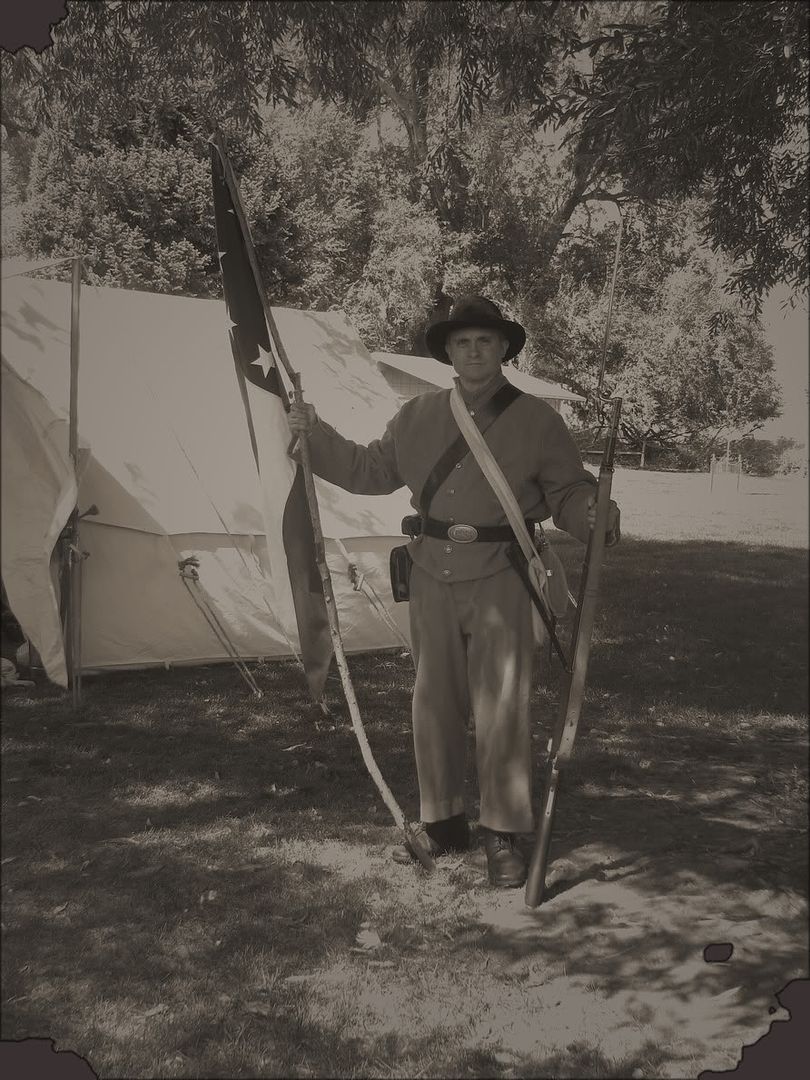 On April 28, 2010, the 3rd novella in my MEN OF THE SEA series will release, Her Captain Dares All, was preceded by Her Captain Returns and Her Captain Surrenders.
On April 28, 2010, the 3rd novella in my MEN OF THE SEA series will release, Her Captain Dares All, was preceded by Her Captain Returns and Her Captain Surrenders.In light of this exciting news, I thought I would revisit an article I wrote for Risky Regencies (and revised for this post), when the first novella released, about Royal Navy Captains in the Regency era…
Let us travel through time to visit my heroes training and life at sea: Captain Ryder Montgomery (Her Captain Returns), Captain Nathaniel Cruise (Her Captain Surrenders) and Captain Jeremy Williams (Her Captain Dares All).
My heroes were all second sons (which means since they wouldn’t hold the title and seat in Parliament, they had to find another way to make a living), and from their earliest days, had penchants for the sea. It was only natural for them to join the navy at the age of thirteen as a mid-shipmen. They certainly did their fair share of scrubbing the deck and tying knots, but when they were a little older they were allowed to take care of the log line, and sometimes delegate sailing duties. By the age of twenty, each of the my heroes was promoted to Lieutenant. Ryder and Nathaniel were promoted as Captain of their own ships, by the age of 23, but for Jeremy, he was a little older.
My heroes were flogged only a handful of times, but several of their shipmates were flogged regularly. What for, you ask? Ryder himself was given ten lashes for neglect of duty. Nathaniel for smart mouthing his superior, and Jeremy for disobeying an order. Ever hear the term poor salt on a wound? Well that’s exactly what the ship’s surgeon
 did when he took care of the wounds after each boy’s punishment… We must remember, poor Ryder was only fourteen at the time, and he wasn’t exactly neglecting on purpose, he was in fact heaving his guts out from dinner the night before. And Nathaniel? Well, he’d just come from his home where he was often spoiled and not used to taking orders. Sweet, sweet Jeremy… He was only trying to help a fellow shipmate who’d be ordered to undergo three days without food or water.
did when he took care of the wounds after each boy’s punishment… We must remember, poor Ryder was only fourteen at the time, and he wasn’t exactly neglecting on purpose, he was in fact heaving his guts out from dinner the night before. And Nathaniel? Well, he’d just come from his home where he was often spoiled and not used to taking orders. Sweet, sweet Jeremy… He was only trying to help a fellow shipmate who’d be ordered to undergo three days without food or water.Food on the ship wasn’t exactly appetizing, although, most sailors were excited to have regular meals, as when they were on land, eating three times a day wasn’t always a guarantee. The main staples of a navy diet, included salted meat, which was sometimes so rancid it was inedible by some, and even when boiled for hours the meat could still be as hard as a rock, unless they hadn’t been at sea very long and “fresh meat” in the form of livestock was onboard. This would be made into a stew with whatever fresh or dried veggies were available and rice or oats. Instead of bread, they had ships biscuits that were either filled with weevils. Sounds tasty! For breakfast it was porridge sweetened with molasses. To drink, if the fresh water had already turned a slimy green, they had watered down ale, watered down wine or watered down rum.
As members of the crew, Ryder, Nathaniel and Jeremy slept in a hammock twenty inches from the next hammock. When they became captains they got their own rooms aboard their prospective ships. Ryder had a hammock placed inside, as he found after ten years at sea, it was much easier to sleep on. Nathaniel was grateful to finally have a bed, as was Jeremy.
The life of a Naval Officer wasn’t all pomp and squalor. While most of them lived privileged lives, they had to earn it. Some were second or third sons of the nobility, and some were sons of well to do merchants. And there were even those who were born at the bottom of the barrel and made their way to the top.
During the Regency era, a ship’s captain could become quite wealthy. How? Was the king paying well? The salary for a seaman was meager, and for a captain also wasn’t opulent—most would try to marry for money. No, most captain’s made their riches from other captains, especially during the Napoleonic campaigns. When a ship’s captain commandeered another ship, the whole crew shared in the spoils.
Officers in the military were well respected by the people, and since most came from well to-do families, they often hob-nobbed with the rich and the aristocrats.
In Her Captain Returns, Ryder ends up going away on a mission for several years, and isn’t allowed contact with anyone outside, including his wife. One of the things I wanted to illustrate in this story, was how hard it was for the wife of a man of the sea. Just as it is today with a military wife, it was much the same back then, except they didn’t have television to see what was happening, and their news stories were a lot more delayed. A wife may have still been receiving correspondence from her husband, only to learn he’d been dead for two months.
In Her Captain Surrenders, my hero struggles with revealing his mission to Juliette who thinks that he has been allowed a sojourn to design ships. She wants to marry for love, and Nathaniel has caught her fancy, but Nathaniel vows he’s only married to the sea. As a second son, and a Captain in the Navy, he doesn’t have much to offer Juliette. He’s a little intimated by the prospect of marrying a lady. But lucky for him, Juliette has her own money. (Visit this post: Regency Women, Money and Men.)
In my upcoming release, Her Captain Dares All, Jeremy is reluctant to follow his heart. He was right front and center watching Ryder struggle to fix his marriage. His life is at sea, and he’ll only hurt Tessa if he continues down that path… Eventually, he will dare all to be with her, and she’ll be right there to meet his challenge.
My heroines are tough, feisty women who know what they want. They are independent, giving, loving. And my captains, my loves, my heroes, give all for their women and more.
To end this blog, I leave you with a couple of fun naval terms:
Bitter End - Have you heard the phrase “faithful to the bitter end”? Well, it is a naval term! The wooden or iron posts sticking through a ships deck were called a bitt. Turning a line around them was called, the bitter end.
Chewing the Fat – Remember my description of the nasty meat? Well some men would chew on it for hours, and referred to it as, chewing the fat.
He knows the ropes – Nowadays this means someone is pretty skilled at what they’re doing. Back in the day though, it meant literally, novice and that all he knew were the ropes.
Took the wind out of his sails – this originally described a battle move where one ship would get so close to the other it would take the wind away, and slow down the opposing ship.
****
Eliza Knight is the author of historical romance and time travel erotic romance. Visit her at www.elizaknight.com
 Releasing April 28, 2010!!!!
Releasing April 28, 2010!!!!Her Captain Dares All - Book Three in my Men of the Sea series, a Regency romance novella.
Pursued by kidnappers, Lady Tessa Woodward is running for her life. When handsome Captain Jeremy Williams comes to her rescue in the backstreets of Paris, she persuades him to help her escape France and return to her home in England.
Captain Jeremy Williams is captivated by Lady Tessa's fiery nature and agrees to give her passage aboard his ship. Once on board, his desire grows and soon reveals a sensual side to the woman he can’t deny. But when danger threatens his lady, will the captain dare all to save her?
Upcoming Workshop 4/5/10 - 4/30/10
The Power of GMC: Crafting Compelling Characters and Kick-Butt Stories
by Renee Knowles and Eliza Knight
Do you find yourself confused by GMC? Is it a challenge to create gripping goals, motivations and conflicts for your characters? Do you have a hard time determining the difference between internal and external GMC? Do you want to kick up the tension and conflict in your story? Then it’s time to learn the ins and outs of GMC.
Without a solid backbone of internal and external goals, motivations and conflict, your story won’t grab the reader and characters can fall flat. This class will teach you how to dig deep and uncover your hero and heroine’s true GMC, re. You’ll learn how to define their goals succinctly and relate them directly to their conflicts and motivations. You will do exercises designed to help you use GMC to enhance your plot and give your story more direction.
In those lessons we’ll also be discussing POV, passive vs. active, showing vs. telling, and other nitty gritty details that make your manuscripts come alive.
Visit: http://www.celtichearts.org/ to register!









